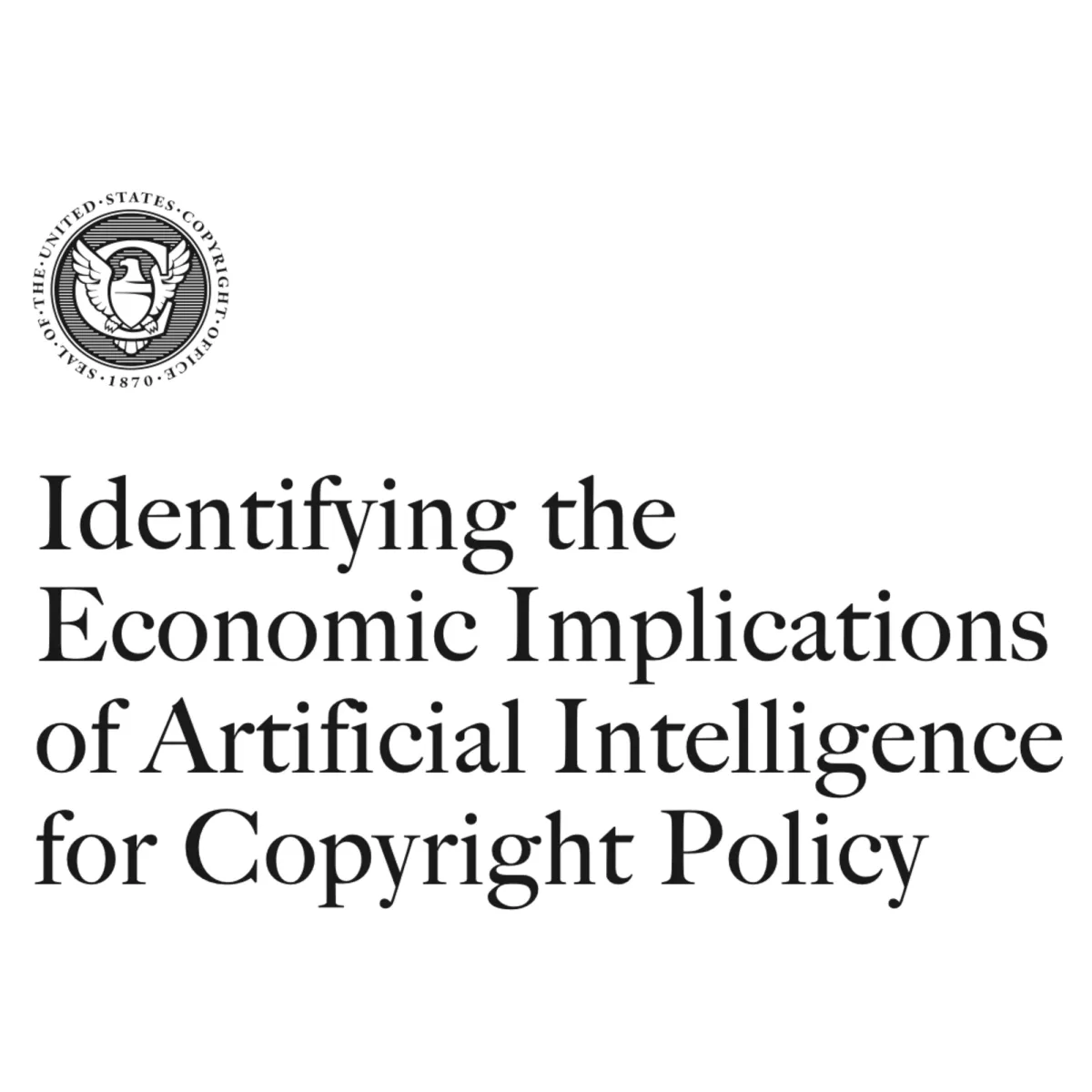
The U.S. Copyright Office released today a comprehensive report examining the complex economic implications of artificial intelligence for copyright policy, marking a significant step in understanding how AI impacts creative industries.
According to the report, titled "Identifying the Economic Implications of Artificial Intelligence for Copyright Policy: Context and Direction for Economic Research," the analysis emerged from months of discussions among economic scholars, technical experts, and researchers, culminating in a daylong roundtable event.
The 57-page document, edited by U.S. Copyright Office Chief Economist Brent Lutes, provides a structured framework for evaluating how AI technologies affect traditional copyright incentives and market dynamics. The timing proves particularly relevant as foundation models continue reshaping creative industries.
The report identifies several critical areas requiring focused economic research. Among these are the effects of AI-generated works on human creators' incentives, challenges around training data access, and potential socioeconomic biases emerging from different policy approaches.
A key finding highlights how AI could fundamentally alter the economics of creative production. According to the report, while AI may reduce production costs for human creators, it simultaneously risks diminishing their ability to capture value from their works, particularly if AI-generated content serves as a market substitute.
The analysis explores multiple policy scenarios, ranging from unrestricted AI access to copyrighted training materials to strict liability frameworks. Each approach carries distinct implications for innovation, market competition, and creative incentives.
Notably, the report examines how different regulatory frameworks might affect various stakeholder groups differently. Larger incumbent firms with substantial data resources could gain advantages over smaller players under certain policy regimes, potentially affecting market competition dynamics.
The document also raises concerns about unintended consequences. According to the contributors, policies restricting access to training data might inadvertently bias AI systems toward older public domain works, potentially embedding dated societal norms into AI outputs.
The report emphasizes transaction costs as a crucial consideration in policy design. High costs associated with individual licensing negotiations could make certain theoretical solutions impractical at scale, necessitating careful consideration of collective management approaches.
While avoiding specific policy recommendations, the analysis provides detailed evaluation criteria for assessing different approaches. These include maintaining copyright system integrity, preserving human creative incentives, managing legal ambiguity costs, and distinguishing genuine value creation from mere value transfer.
According to Lutes, the publication aims to accelerate and coordinate economic research in this area. "Development of AI technology has meaningful implications for the economic frameworks of copyright policy, and economists have only just begun to explore those," he said in the announcement.
The report represents the collective thinking of academic economists from leading institutions including Harvard Business School, MIT, and the University of Toronto, though their views do not necessarily represent official Copyright Office positions.
This development comes as policymakers worldwide grapple with regulating AI's impact on creative industries. The analysis provides a rigorous economic framework for evaluating policy options, even as technological capabilities continue evolving rapidly.
The timing of this report, released February 12, 2025, reflects growing urgency around establishing appropriate governance frameworks for AI systems that interact with copyrighted materials. As foundation models become more sophisticated, the economic questions explored in this analysis will likely become increasingly central to copyright policy discussions.
The full report is available through the U.S. Copyright Office website, offering a detailed examination of the economic considerations that should inform future policy decisions in this rapidly evolving space.

